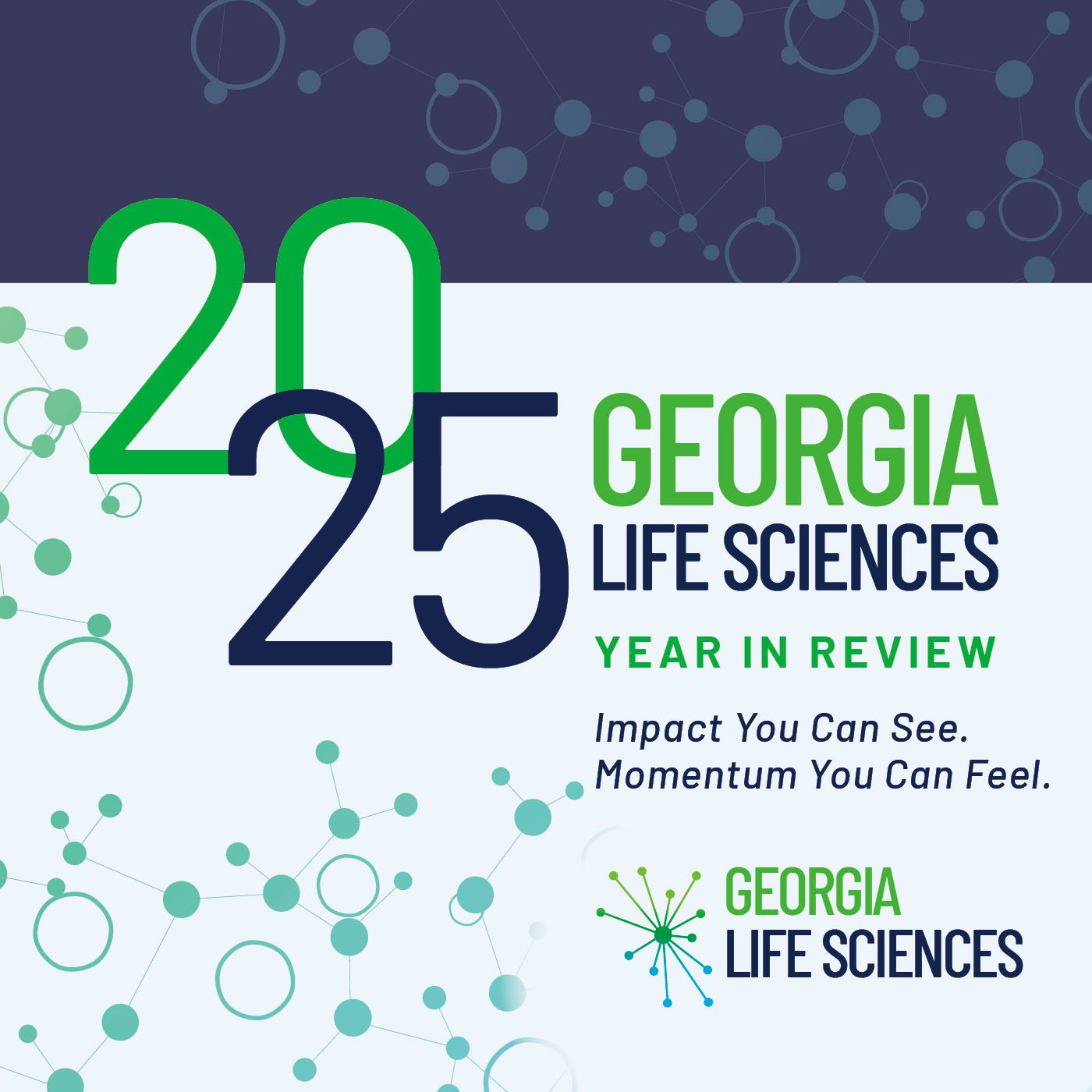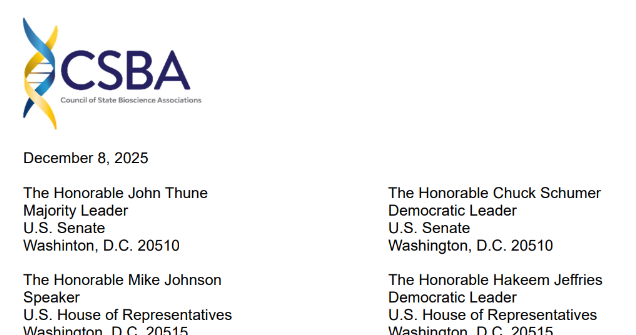Georgia Bio 2019 Legislative Session Recap
The 2019 Georgia 40-day legislative session concluded with Sine Die on Tuesday, April 2nd. This legislative session was characterized by new leadership in the Governor and Lt. Governor’s office, as well as 40 freshman legislators.
Of the eight measures detailed below, there were two for which Georgia Bio actively advocated on behalf of our members and the people of georgia. Our rural teacher training program received state funding to expand an existing pilot training program for high school teachers that specifically addresses the skill and equipment gap. Workforce development and availability is always a top question we must address with life sciences companies seeking new locations, headquarters or expansions. More on this exciting development and program is coming soon.
We also took a supportive stance on HB 63, which helps protect patients from onerous step therapy requirements. That bill was signed into law by Governor Kemp as well.
We thank our legislative affairs team for their tireless work arranging and executing on awareness and importance meetings with appropriation committee members, the Governor’s and Lt. Governor’s offices. We also thank our members who contributed in person to those meetings to ensure the industry’s position and subject matter expertise were well represented in those conversations with our state legislators.
As Georgia Bio closes out a successful legislative session, we will be meeting with and working with as many members as possible during the remainder of the year to discuss top of mind priorities and construct our legislative efforts going into the 2020 session.
Here is a recap of the top life science industry items that made it through the session and were signed into law last month by Governor Kemp.
2019 Legislative Priorities
Rural Teacher Training Program
As many of you are aware, the life sciences industries require many skills that are in the traditional STEM education area, however what is often lacking is practical laboratory technique combined with hands-on laboratory experience. Thanks to the leadership of state appropriators and Governor Brian Kemp, Georgia Bio was able to secure funding in the FY2020 budget to match private funds that will enable Georgia Bio, through the Georgia BioEd Institute in partnership with the Marcus Center for Therapeutic Cell Characterization and Manufacturing at Georgia Tech, to expand an existing pilot training program for high school teachers that specifically addresses the skill and equipment gap. Partnering with the Department of Education and the Georgia Youth Science Centers, year one of the program will provide 8 training workshops in rural school districts impacting roughly 64 high school teachers and reaching over 5,000 students.
BILL MOVEMENT
This session the Georgia Generally Assembly passed legislation that would establish step therapy protocols for patients, provisions for the licensure of genetic counselors, the authorization to submit a Section 1115 waiver request to the United States Department of Health and Human Services Centers for Medicare and Medicaid Services, and modernizing telemedicine policy in Georgia. Please see below for more details on bills that passed out of the 2019 Georgia Legislative Session and signed into law by Governor Kemp.
HB 63 – Health Benefit Plans to Establish Step Therapy Protocols
Georgia Bio Legislative Affairs Committee voted to SUPPORT HB 63, introduced by Representative Sharon Cooper (R – Marietta) establishes step therapy protocols to protect patients from onerous step therapy requirements. Ensures that step therapy protocols are based on clinical guidelines developed by independent experts. Establishes a basic framework for when it is medically appropriate to exempt patients from step therapy, as well as an exceptions process that is transparent and accessible to patients and health care providers. The step therapy bill passed out of the Senate with a vote of 49-0 and House of Representatives with a vote of 165-0 on April 2
nd
.
HB 166 – Genetic Counselors Act
Representative Deborah Silcox (R – Sandy Springs) authored HB 166, requiring licensing for genetic counselors, including physicians, assistants and mandates some continuing education requirements. There are approximately 89 genetic counselors in Georgia and all those individuals have master’s degrees for a specialty in genetic counseling and half work in hospitals. The other half of the genetic counselors work out in the field with physicians, primarily, and primary care doctors. They work primarily in three different areas: prenatal care, cardiac care and oncology. HB 166 passed by the House of Representatives by a vote of 148-15 on February 15
th
and was adopted by the Senate with a vote of 45-4 on March 11
th
.
HB 321 – Extend Sunset for the Hospital Medicaid Financing Program
Authored by Representative Jodi lott (R – Evans) HB 321 extends Georgia’s hospital provide fee through June 30, 2025 to help finance the state’s Medicaid program. In FY 2020, the state expects to collect more than $310 million from the provider fee which it will utilize to draw more than $650 million in federal funds. The bill also includes new financial disclosure and transparency requirements for nonprofit hospitals and the five-year extension of the state’s $60 million rural hospital tax credit. The House of Representatives passed the bill by a vote of 147-19 on February 28 th and was adopted by the senate with a vote of 50-2 on March 29 th .
HB 514 – Georgia Mental Health Reform and Innovation Commission
HB 514 authored by Representative Kevin Tanner (R – Dawsonville) creates the Georgia Mental Health Reform and Innovation Commission. The FY 2020 budget also included several increases for mental health services. The House of Representatives passed the bill by a vote of 152-10 on March 7 th and the Senate adopted with a vote of 52-0 on April 2 nd .
SB 106 – Patients First Act
SB 106 coined the Patients First Act Authored by Senate Blake Tillery (R – Vidalia) authorizes the Department of Community Health to submit a Section 1115 waiver request to the United States Department of Health and Human Services Centers for Medicare and Medicaid Services. This act is a step toward lowering insurance premiums, enhancing access to quality care, and improving health outcomes in every part of our state. The Senate passed the bill by a vote of 35-20 on February 26 th and the House of Representatives adopted with a vote of 104-67 on March 25 th .
SB 115 – “Medical Practice Act of the State of Georgia
SB 115 sponsored by Senator Renee Unterman (R – Buford) aims to provide telemedicine licenses for physicians in other states and for Georgia to engage in the practice of medicine with patients in the state through telemedicine. The Senate passed the bill by a vote of 54-0 on February 26 th and the House of Representatives adopted with a vote of 161-2 on March 29 th .
SB 118 – Georgia Telemedicine Act
Authored by Senator Renee Unterman (R – Buford), SB 118 modernize the Georgia Telemedicine Act by renaming it to the Telehealth Act. The bill provides the definitions of telemedicine and telehealth and would require that all health insurance policies over appropriately provided telehealth services. The Senate passed the bill by a vote of 50-0 on February 26 th and the House of Representatives adopted with a vote of 168-1 on March 25 th .
The post Georgia Bio 2019 Legislative Session Recap appeared first on Georgia Bio.





